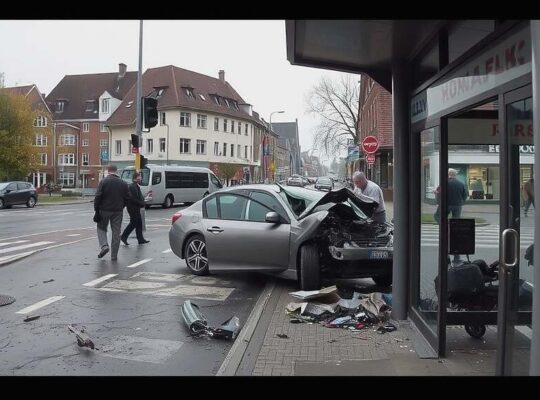A recent study by the Björn-Steiger Foundation has ignited a debate surrounding road safety and the increasing number of accidents caused by senior drivers in Germany. The research, analyzing data from 230,000 police-recorded accidents, reveals a concerning trend: accidents involving senior drivers resulting in injury or fatality are overwhelmingly linked to acute medical events and emergencies.
The study’s findings underscore a stark reality – as driver age increases, so too does the likelihood of physical and cognitive impairments contributing to accidents. Researchers documented instances of dizziness, nausea, seizures, fainting spells and even life-threatening conditions like heart attacks and strokes as significant factors. This presents a complex challenge for policymakers and transportation officials, particularly given that the risk of causing an accident with personal injury for drivers aged 65 and older is now comparable to that of young drivers between 18 and 24.
While the initial inclination might be to propose mandatory health checks for senior drivers, the study’s lead researcher, Siegfried Brockmann, cautioned against such measures, arguing they are largely impractical. These medical episodes are frequently unpredictable and difficult to diagnose reliably in advance. This raises questions about the efficacy and potential intrusiveness of a blanket testing regime.
Instead, the study highlights the critical role of general practitioners in identifying potentially problematic cases through routine care. Brockmann proposes the development of a specialized questioning and examination procedure for GPs to aid in early detection. Beyond physician awareness, the report also acknowledges the potential of emerging technologies. Wearable health monitors, while not a solution during critical moments behind the wheel, offer a continuous data stream that could contribute to a more comprehensive understanding of individual driver health risks.
Perhaps the most promising avenue, according to the study, lies with automakers pioneering Artificial Intelligence (AI)-powered systems capable of recognizing dangerous situations and safely bringing vehicles to a halt. The report specifically calls upon these manufacturers to accelerate the implementation of such technology into mass-produced vehicles. The findings effectively shift the onus from individual driver testing to technological solutions, raising questions about both the ethical implications and the potential cost-effectiveness of integrating AI safety protocols within the automotive industry and the broader infrastructural support needed to realize their full potential.












